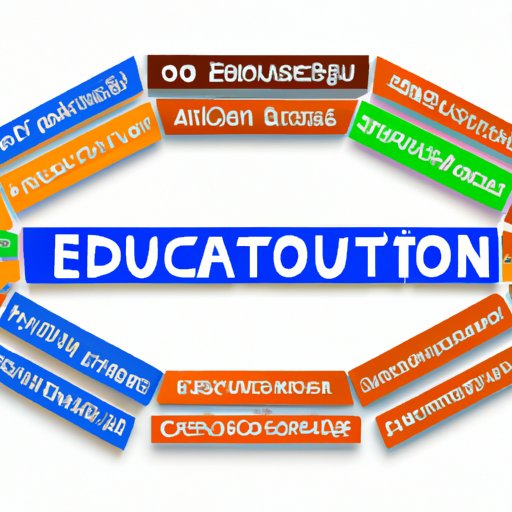
I. Introduction
Education is a crucial part of any society, providing individuals with the skills and knowledge necessary to thrive. Not only does education benefit individuals by improving their job prospects and quality of life, but it also benefits society as a whole by fostering innovation, reducing poverty, and improving health outcomes. This article will explore why education is important to society, examining the various social benefits of education, its role in poverty reduction and improving health outcomes, its impact on social capital, and its ability to help individuals and communities navigate a rapidly changing workforce.
II. Social Benefits of Education
One of the most important benefits of education is its ability to improve critical thinking and problem-solving skills. Individuals who have received an education are better able to analyze situations, evaluate evidence, and make informed decisions. Additionally, education fosters creativity and communication, providing individuals with the tools to think outside the box and communicate their ideas effectively.
The social benefits of education are numerous and wide-ranging. Educated individuals are more likely to be engaged citizens, with higher rates of voting and volunteerism. They are also better equipped to understand complex societal issues, such as climate change and economic inequality, and are more likely to take action to address these issues.
III. Education and Poverty Reduction
Education also plays a critical role in reducing poverty and inequality within society. Studies have consistently demonstrated a correlation between higher levels of education and increased job opportunities and earning potential. Education provides individuals with the skills and knowledge necessary to succeed in the workforce and earn a liveable wage.
In addition to improving job prospects, education can also help individuals and communities overcome poverty. For example, education can provide individuals with the knowledge necessary to effectively manage their finances, increase their savings, and avoid falling into debt. It can also provide communities with the tools to address deeper structural inequalities, such as discrimination and unequal opportunities. By reducing poverty and improving access to education, societies can create a more equitable and just society for all.
IV. Education and Health Outcomes
Education has a significant impact on health outcomes. Individuals with higher levels of education are more likely to make healthier lifestyle choices, such as exercising regularly and eating a balanced diet. Additionally, education provides individuals with the knowledge necessary to navigate complex health systems and make informed decisions about their healthcare.
Beyond these individual benefits, education can also have broader societal implications for health. For example, education can help communities respond to public health crises like pandemics, by increasing public awareness and promoting responsible behaviors. By improving health outcomes, education can contribute to a healthier, more productive society.
V. Education and Social Capital
Education can also help build social capital, strengthening the bonds within communities and fostering social cohesion. It provides individuals with the skills necessary to engage in meaningful civic activities, such as volunteering or participating in community organizations. Through these activities, communities can develop a more unified sense of purpose and a shared vision for the future.
Additionally, education provides communities with the tools necessary to address complex social challenges, such as economic inequality and climate change. By drawing on the creativity and analytical skills cultivated through education, communities can develop innovative solutions to pressing social problems.
VI. Education and a Changing Workforce
Finally, education plays a critical role in preparing individuals and communities for a constantly evolving workforce. As new technologies and economic shifts transform the job market, education provides individuals with the skills necessary to adapt and thrive.
Lifelong learning is also becoming increasingly important, as individuals need to maintain current skills or learn new ones to remain competitive in the job market. Education can provide individuals with the necessary resources and opportunities for ongoing learning and development.
VII. Conclusion
Education is a critical component of any society, providing numerous benefits for both individuals and communities. By improving critical thinking and problem-solving skills, reducing poverty and inequality, improving health outcomes, building social capital, and preparing individuals for a changing workforce, education helps to create a more just, equitable, and prosperous society. As individuals and communities, it is up to us to prioritize education and ensure that everyone has access to the tools and knowledge necessary to succeed. Let’s work together to build a better future for us all.




